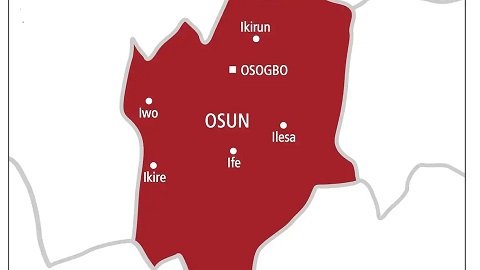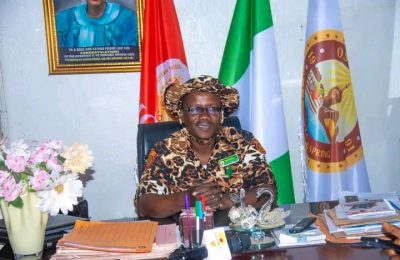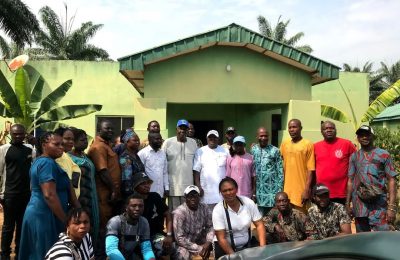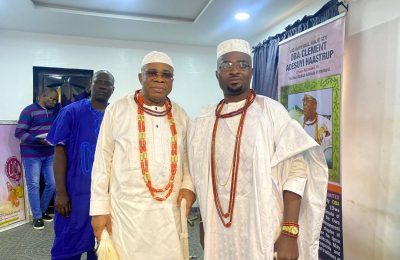


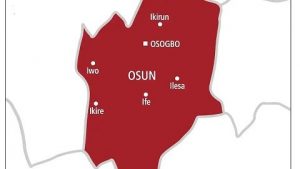
THE Yoruba presents a very deep and sophisticated race such that you take their hospitality and generosity for weakness at your own peril. Being Yoruba myself and the Secretary General of the Afenifere are indeed useful instrument in the deeper search for the corporate personality of the Yoruba and her worldview.
In their millions across the world, the common determinant of Yoruba behaviour is his love for freedom, which he uncompromisingly craves for himself and, at great personal pains, he also fights for others at both personal and group level.
My love for road travels has understandably reduced in recent times, but compelled this past weekend to be the guest of Dr. Wale Omole whose wife and mine were childhood friends at the burial of his elder brother and mentor, Chief Olatubosun Adenipekun Omole, the Asiwaju of Ipetu-Ile.
From Akure to Osogbo through Ikirun headquarters of Ifelodun Local Government which proximity to Osogbo will make it soonest part of the Osun State capital territory, we traversed Boripe Local Government. I personally took special interest in its headquarters, Iragbiji, that ancient town, so prominent in Yoruba history and its wars and made ceaselessly relevant by the claim of its being the birthplace and cradle of a most colourful Nigerian politician.
Obokun Local Government which in all ramifications painted the picture of entry into Ijesa land from that axis, is where Ipetu-Ile, our destination, is located. The large Methodist Church where the funeral service held was filled beyond capacity with more people outside the auditorium. My interest in the service, culture, history and of course, politics was all encompassing.
The teaser was the array of ladies who thronged the venue as expert women headgear (gele) makers who made brisk businesses therefrom. While my wife was being attended to my wait was made worthwhile by cultural splendour featuring miniature theatre groups of not more than six members each in distinctive uniforms entertaining guests who appreciated them in cash.
Inside the Church, the officiating priest and preacher both made proceedings lively and interesting with subtle political jibes and jives only the initiated would understand. Several times when the Amen response to their prayers appeared not pleasing enough to them, they would simply add that none of us would fall victim of kidnapping on our way home and the thunderous response of Amen! would nearly rend the Church roof asunder.
As the preacher concluded his sermon, he asked the congregation: ‘Tani o kan? (whose turn). I nearly answered: ‘Emi lo kan’ (it is my turn) when I noticed most people were silent, while some smart ones responded: ‘Emi ko lo kan (it is not my turn). The suspense was only cleared when he then beckoned the undertakers for the recession of the remains of the deceased and then humorously asked who knew whose turn it was to also answer the call of the creator to the other side of existence and the Church, as if they had been in previous rehearsals over it, chorused: ‘Emi kó lo kàn’ (it is not my turn).
The beauty of inter-religion harmony in Yoruba land was unmistakable in the event. My brother and host Dr. Wale Omole during Thanksgiving revealed that the Omole family, a pillar of the Methodist Church in which their deceased patriarch was indeed the Baba Ijo, were originally Muslims. He reminded the congregation that the Methodist Church founded its primary school in the town since 1933, attended by Christians, Muslims, adherents of traditional religions without discrimination.
As it is with all parts of Yorubaland, throughout our journey, structures of both Christianity and Islam stood harmoniously. Religion is a strictly personal matter even between couples and their adult children. As we say in Yorubaland, only God can determine His true worshipper.
The reception at the Community Grammar School sports centre was another arena of a spectacle of culture, commerce, security and politics laced with top class music from Yinka Ayefele. While my wife, Mrs Omole and her siblings, Dupe and Jide, were engrossed in the Ayefele jives, I engaged with some other guests, first on the historical relationship between Ipetu-Ile, Ipetu Ijesha and Ipetumodu.
Though my research still continues on the answer given me by my interlocutors who understandably would play up their town, I know truly that in my part of Yorubaland, in the eastern and southern axis, the word ‘Ode’ is used as prefix to show the source or head- town of the tribe while ‘Ile’ serves the same purpose for the central and northern Yoruba tribes.
The people were only still interested in political analyses rather than reveal the political party or personality of their choices. They discussed the leading presidential candidates and issues in such an informed manner and without betraying sentiments.
Security is their priority which they felt citizens should ordinarily take for granted. Religion would have no consideration in their choice; education of their children cannot be compromised.
I was enjoying my discussions incognito which was involuntarily aborted when my name was blared through Ayefele’s giant loudspeakers as a result of the owambe activities of Mrs Omole and my wife in front of the ace musician. The mention of Ilaje must have convinced some of my friends, politicians and comrades at Great Ife, of my presence in the arena as they came under Wale’s canopy to fetch me.
As we departed Ipetu-Ile through Ijebu-Jesa bursting out at Iloko-Jesa enroute Akure, I could not but appreciate the ingenuity of Jeremiah Obafemi Awolowo and his colleagues who rightly understood the uncanny love of the Yoruba for liberty, on account of which they fought wars even amongst themselves particularly between 1789 and 1880, the reminiscences of which are the ancient mud houses architecture which still dotted the landscape of all the towns we journeyed through.
Awolowo and his colleagues thought rightly that only with education would this spirit of liberty be harnessed and unleashed and which they gave the Yoruba free.
The moods of these architects of modern Yoruba were aptly captured in the Afenifere Anthem which I sang throughout our return journey. Our destiny, indeed, is Africa’s leading light.
It’s a duty that we owe
To our dear Great Motherland
To enhance her
And to boost her
In the eyes of all the world
Egalitarianism It’s our national watch word
Equality of good fortune
Must be to each sure reward
Liberty and brotherhood
Are the goals for which we will strive
Plus progress, plus policy
And other good things of life
Up, up oodua
And take thy rightful place
It’s thy birthright
And the destiny
Africa’s leading light.
Nigeria! We hail thee.
Ebiseni is Secretary General, Afenifere. Continue Reading



